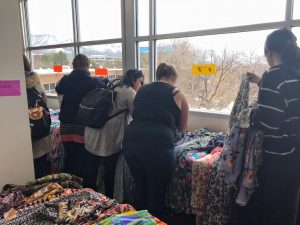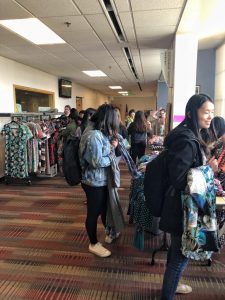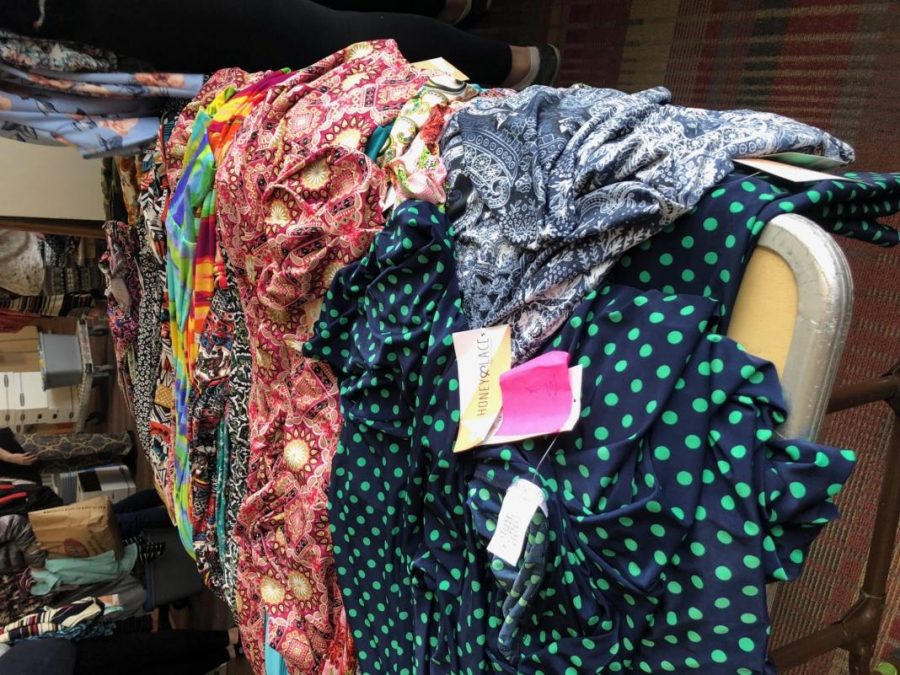Outside the Women’s Resource Center (WRC) at the University of Utah on April 18, over 1,400 items of clothing were placed on racks, tables and hangers ready to be claimed — for free. The clothes were donations from Piphany, a local company, that was looking to turn over its stock. The Union loaned racks, hangers and folding dividers for dressing rooms, and the mini marketplace was ready for business around 10 a.m.

Jenna Matsumura, the Outreach Coordinator for the WRC, said that the public’s reaction was overwhelmingly positive.
“During the shop, I heard many people talk about how excited they were to be given beautiful free things,” Matsumura said. “Many people asked, ‘What’s this for?’ and our response was, ‘Because you deserve it.’”
The shop offered a variety of clothing including patterned blouses, trendy palazzo pants, sundresses, athletic skirts and bodycon dresses, with sizes ranging from XS to 3XL. The WRC aimed to make the shop accessible to women of all sizes.

Attendees were encouraged to take several items, with WRC staff and partners encouraging individuals to “treat yo’ self.”
Over 150 people attended the pop-up shop between 10 a.m. and 2 p.m., and by the end of the afternoon, less than ten of the original 1,400 items remained, which were donated to a local women’s refugee group.
All individuals, regardless of gender, were welcomed at the shop. It wasn’t uncommon to hear people saying, “Wow that looks so good on you!” and watch strangers help one another find the best size.
“It was a very body-positive and encouraging space,” Matsumura said. “I overheard someone say, ‘This is the most nurturing shopping experience I’ve ever had,’ and that brought tears to my eyes. For so many people, buying and trying on clothes is a painful and perhaps traumatic event. Society tells women of all sorts that their bodies aren’t ‘enough’ and often times, those messages are strongest when shopping.”
After what it deemed a success, the WRC plans to put on similar events in the future.
“Buying new clothes and feeling beautiful in them shouldn’t be seen as a tax or something that breaks the banks of our students,” Matsumura said.


